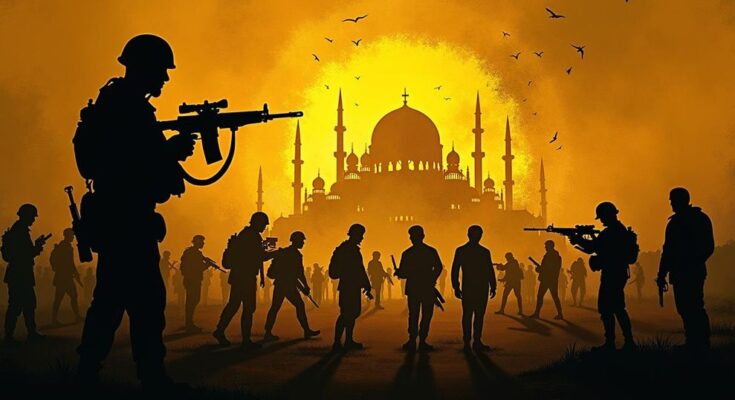Hezbollah remains resolute in its defiance against Israeli military actions, particularly following the assassination of its leader, Hassan Nasrallah. Despite substantial losses and ongoing Israeli airstrikes, Hezbollah officials claim they have restored communication lines and readiness to retaliate fully. The group’s leadership underscores a shift in strategic calculations, indicating their intent to engage without restraint, reflecting a steadfast commitment to defend Lebanon while preparing for a protracted conflict with Israel.
In the wake of significant losses and strategic setbacks, Hezbollah has expressed an air of defiance and confidence amidst escalating Israeli military actions. Particularly following the assassination of its leader, Hassan Nasrallah, the Iran-backed militia has signaled its intent to retaliate robustly against Israeli forces. Despite facing heavy blows, including the deaths of numerous senior commanders and thousands of its members, Hezbollah officials state they have largely restored their communication networks and maintain the integrity of their missile capabilities. Hezbollah’s recent experiences reveal heightened pressures from Israeli strikes, with the past two weeks resulting in substantial casualties among its ranks and civilian populations. However, fighters within the group assert preparations are underway to engage in a more forceful resistance strategy, suggesting that their arsenal remains largely functional. An anonymous missile specialist known as “Hassan” articulated this sentiment, indicating that Hezbollah is primed to engage in conflict without restrictions, declaring that “All red lines are gone.” The broader implications of Israel’s military operations, including intensified airstrikes targeting not only Hezbollah but also affiliated anti-Israel groups across the region, pose significant challenges to the militia’s operational security. Nonetheless, statements from within Hezbollah suggest a readiness to confront Israeli incursions head-on, emphasizing a commitment to a long-term engagement in defense of Lebanon’s sovereignty and resistance against foreign aggression. Internal perspectives reveal a notable shift in the group’s strategic calculations, as the perceived necessity for restraint in response to prior provocations has diminished significantly since the loss of Nasrallah. Despite ongoing threats and losses, Hezbollah maintains that its military capabilities remain undiminished, with deputy leader Naim Qassem affirming the militia’s ability to target deep within Israel while operating under extensive war plans. As the landscape continues to evolve, Hezbollah displays both a willingness and a resolve to assert its military presence and retaliate against Israeli actions, reflecting the group’s enduring commitment to its objectives.
The article outlines the current situation of Hezbollah following the assassination of its leader, Hassan Nasrallah, and the subsequent Israeli military actions that have led to significant casualties for the militia. Its historical context is rooted in the group’s founding during Israel’s 1982 invasion of Lebanon, with its leadership adapting over time to various military and political challenges. The recent Israeli airstrikes have intensified, raising questions about Hezbollah’s operational capabilities and the impact of loss within its leadership. This analysis seeks to explore the responses of Hezbollah to these circumstances, including their promise of retaliation and assurance of restored capabilities amidst a shifting regional conflict landscape.
In conclusion, the situation surrounding Hezbollah following the assassination of Hassan Nasrallah reveals a complex interplay of loss, defiance, and a renewed commitment to military engagement. Hezbollah appears poised for a strong response to Israeli aggressions, asserting resilience in its communication and missile capabilities despite recent setbacks. As tensions escalate, the implications of these developments will significantly shape the dynamics of regional conflict and the response strategies of both Hezbollah and Israel in the forthcoming period.
Original Source: www.csmonitor.com




